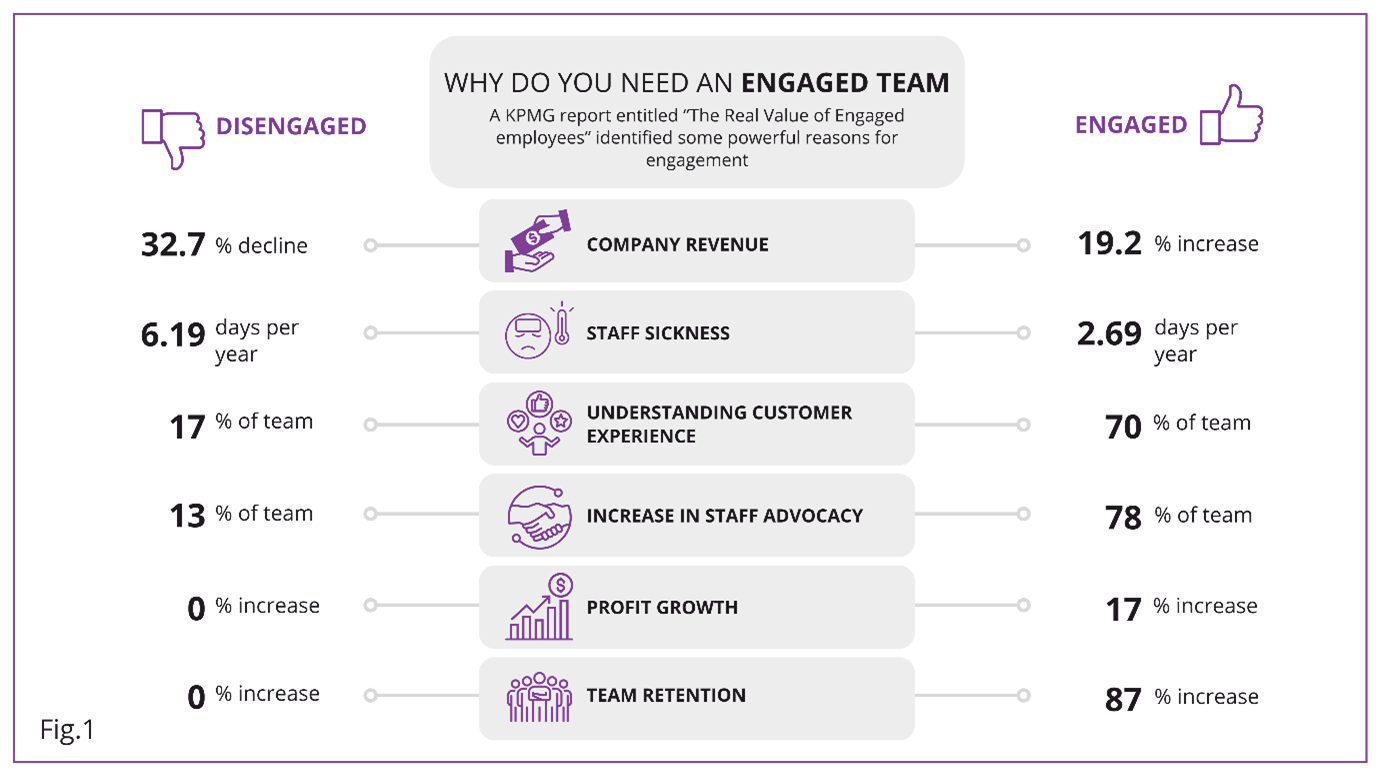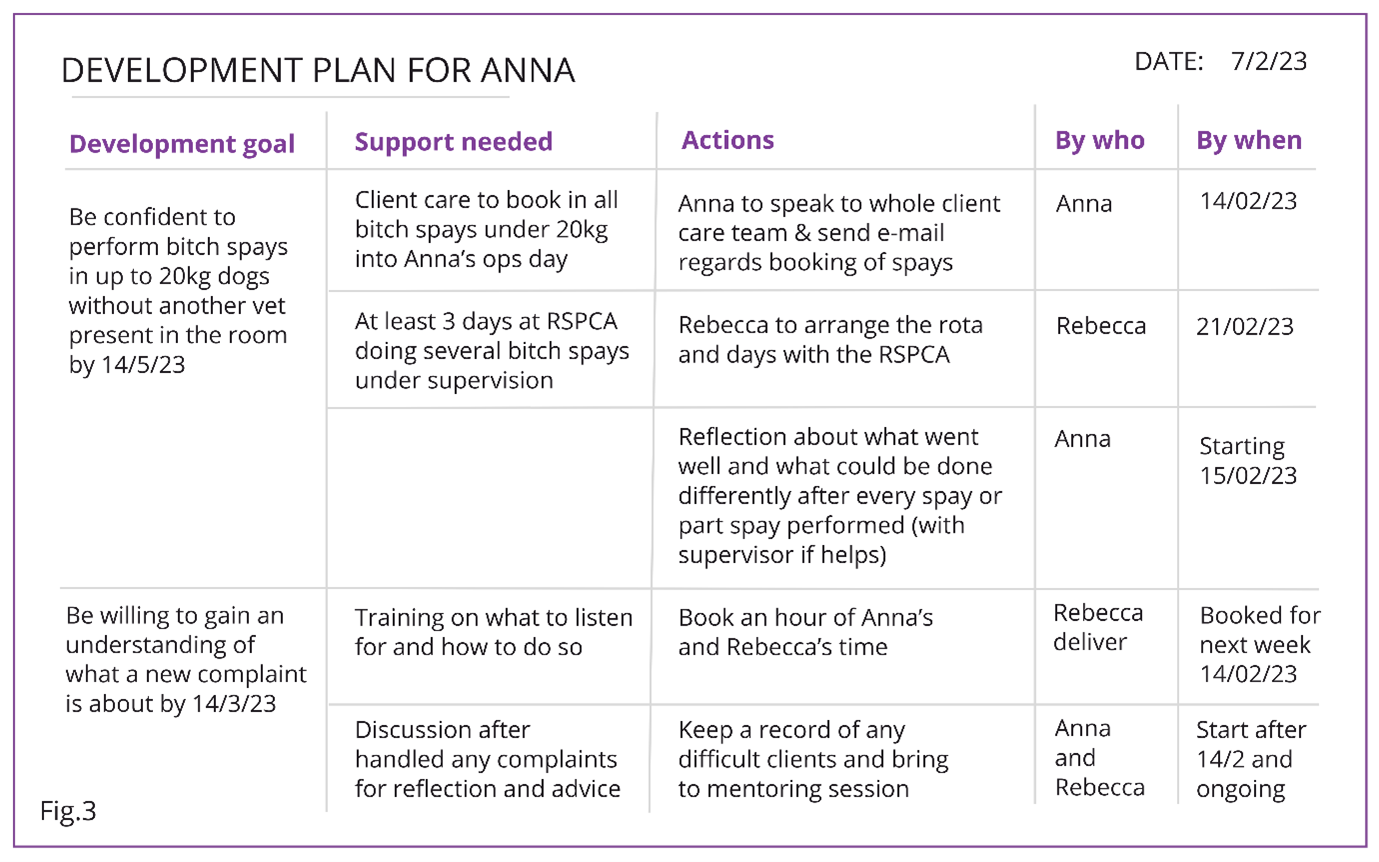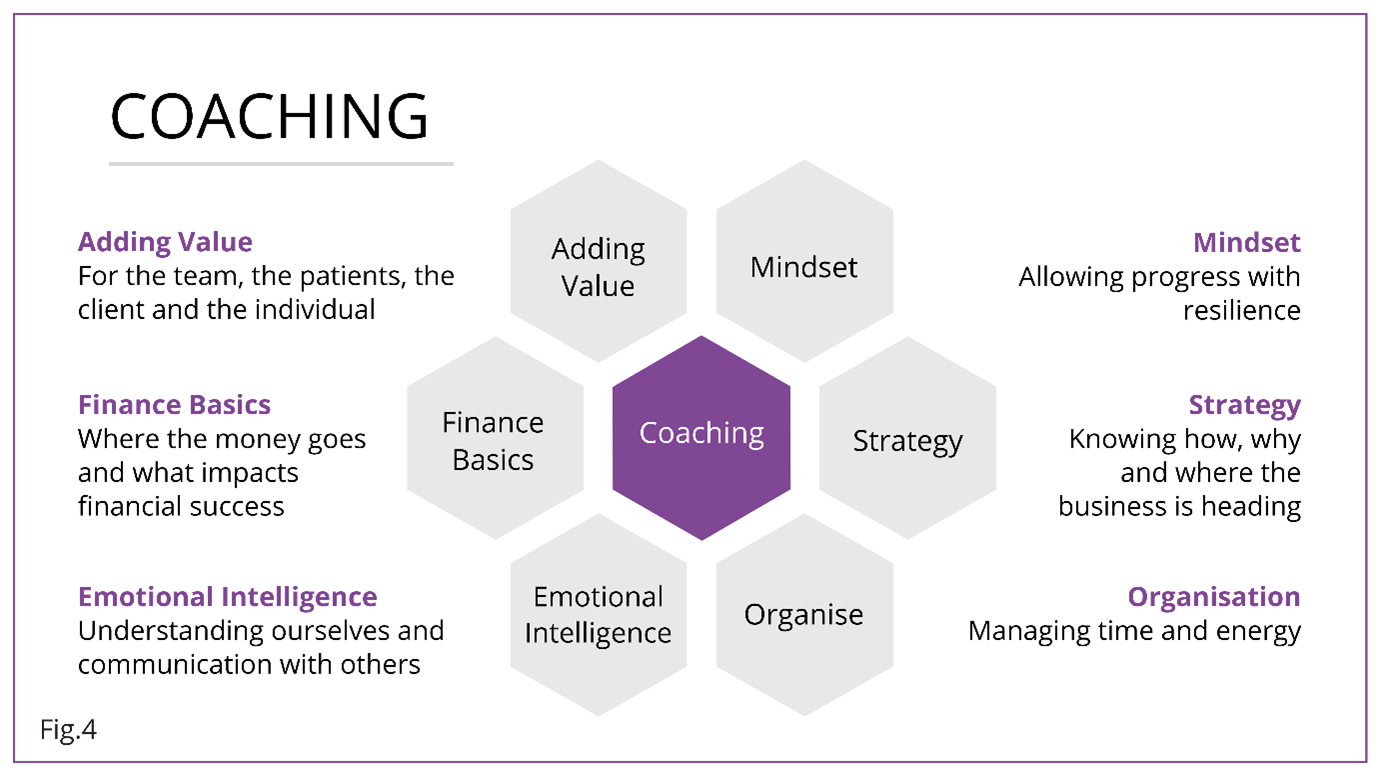By Rebecca Robinson MRCVS
Published in the February 2024 issue of VBJ with our thanks.
We, as leaders, have the privilege to support new graduates through their first months and years in practice. We are shaping the next generation of vets, and those first few years will undoubtedly influence their future in this profession.
Having dedicated so many years to study, new graduates enter practice life balancing their perfectionist need to ‘do it right’ with a practical need to meet the demands of the real world. This transition can be challenging at best and overwhelming at worst. For Practice Owners, providing this level of support can be time-consuming and costly, financially and in terms of impact on the team and clients. We need to get this right so our new graduates can, too.
Therefore, we are responsible for providing the best learning environment in our practices and creating great places to work. Let’s explore how!
By structuring and planning our support, we can minimise the challenges and maximise the outcomes. The goal is to create intrinsic motivation, and we do this by encouraging mastery, autonomy and progress. From this type of motivation comes engagement. Engagement is critical because an engaged team member is more likely to perform, be at work, and stay at your practice (KPMG – see Fig. 1).

Studies show newly qualified vets want a supportive practice culture, regular feedback, reasonable and managed workload expectations, clinical and professional advice, and a tailored skills development plan. We can categorise these requirements into leadership and mentoring.
Leadership
Leadership is the starting point when carving the right culture. Leaders must exemplify anything they want to see in their team so that team members can follow, embracing the practice’s values and modelling the best behaviours. Creating a supportive culture means investing time and resources into continuous improvement, team communication, personal development and well-being. Culture creation – and maintenance – is beyond the scope of this article. However, there are many resources to help with leadership and culture, including the Vet Dynamics Platinum Academy and the Veterinary Management Group modular ILM.
Mentoring
For this feature, I will focus on the aims of mentoring and how to mentor effectively and efficiently. The Oxford English Dictionary describes a mentor as an experienced and trusted advisor. The true definition of mentoring, though, is more specific; it is a reciprocal learning relationship in which a mentor and mentee agree on a partnership, working collaboratively toward achieving mutually defined goals that will develop a mentee’s skills, abilities, knowledge, and thinking.
An effective mentor uses a combination of teaching, directing, listening, coaching, and advising skills and knowing when to apply each (an art in itself!) will make it successful. Furthermore, a mentor should check in on general well-being, give feedback, encourage reflection, celebrate success, manage workload, build further development plans, offer advice, and teach and guide as part of this relationship. Below I go into these in more detail.
- Proactively supporting well-being is essential for health, happiness and performance. Let’s take a closer look at the business perspective. Leaders have a duty of care to their team. We all know that stress reduces our ability to learn. Yet, most vets would admit that the first few months of being a qualified vet was one of the most stressful periods of their careers.So, to help our new graduates thrive, develop confidence quickly, and do well in our practice, we must help them manage their mindset and stress levels and develop healthy habits from the start.
A vast range of support is available, and the best way to find out precisely what will help is to ask them. Simple, open-ended questions are an excellent place to begin, such as ‘How are you?’, ‘What have you struggled with?’ or ‘What has gone well?’. Sometimes, you might get a superficial answer, so active listening is crucial to establish when to delve deeper.
- Managing and tailoring the workload to your new graduates can help them further. New graduates can naturally take longer to do things than experienced vets, so it is reasonable for them to start with double-length consultations and gradually reduce the time at the correct pace for the individual.Similarly, with operations, allowing extra time and booking more routine procedures will minimise pressure and reduce cognitive load. Feel free to experiment with adaptations and review their efficacy together. This way, creating a tailored work schedule is possible, allowing different individuals to progress at their own pace without excessive stress.
- Feedback provides new graduates with a practical progress compass and an understanding of how well they perform relative to your expectations. Include positive feedback – instances of which, from a psychological perspective, significantly need to outnumber the more ‘constructive’ comments.At the same time, it’s important to remember that your feedback should also be specific: concise, timely, focused on the process or behaviour (never the person), and set at the appropriate level for the recipient. And where should you give feedback? If it’s positive, it’s most effective when done publicly. If it’s constructive, go private. No question!
A helpful format for any input is FBI (see Fig. 2).

- Reflection is vital in learning and confidence development. Therefore, the conversation during feedback sessions and development planning should allow for some personal reflection by the mentee. Simple questions like ‘What do you feel you have done well?’ and ‘What have you learned from this?’ help embed their learning. These insights are helpful at the beginning of a mentoring session because they help you understand your graduate’s feelings and perspective.
- Celebrating successes (consistently) will encourage the behaviours you’d like to repeat and motivate further development. It can be as simple as saying “Well done”, though leaders can show reward and appreciation in other ways. Thoughtful gifts (usually food in practice!), public recognition, or a formal note on their employment records are welcome praises we see in practice. It’s worth remembering that we might all prefer celebrating success differently. Ask your graduates how they would like to celebrate to ensure your good intentions hit the right note.Regardless of praise preferences, what’s needed here is appropriate – and deserved – attention to progress.
- Development plans are practical tools to help leaders monitor, recognise and celebrate progress effectively. You may already use them in your practice. In my experience, conscientious employees appreciate them. But be SMART. Be specific. Identify measurable and achievable outcomes. Set only realistic time scales. Finally – and crucially – both mentor and mentee must agree on the goals and the steps required to achieve them at a suitable rate. (See Fig. 3 for an example of a development plan).

- Advice, training and support are all necessary for developing clinical and non-clinical skills, and the amount of each depends on current levels of knowledge, competence, and confidence. I’ve observed excellent clinical skills and expertise during the past ten years of teaching and mentoring new graduates. Practical experience, technique or confidence in decision-making generally needs to be built upon, which is why high support with lower training and direction is necessary.Historically, non-clinical skills development has been minimal at university, so intensive training, direction, and support are needed initially. Having said that, things are gradually improving in this area.
As many new graduates grapple with gaining clinical confidence, they may need to appreciate non-clinical skills fully. These are skills which will make graduates truly valuable in their team and include:
* attitude and mindset
* planning skills
* time and stress management
* communication and emotional intelligence
* understanding practice finance (and their role in this)
* working comprehension of delivering value to the client – from the client’s perspective, not their own.
From my experience and feedback from new graduates and their leaders who’ve utilised our Vet Graduate Academy, acquiring these skills significantly affects their progress, productivity, happiness, well-being, working relationships and overall confidence (see Fig.4).

Finally, once they have confidence, all that is needed is delegation. (See Fig.5).

A word of warning. Suppose your mentorship directs either for too long or without enough autonomy. In these cases, the mentee can become overly dependent on your support.
Providing Clinical Advice
Many new graduates find it helpful to run through any cases that worry them before going home, so a little time should be planned with an experienced vet – at the end of each day initially, then weekly as their competence builds. It helps them reflect, get feedback and then switch off, therefore getting suitable rest before the next day.
New graduates may only sometimes ask for this kind of help during the day because they are worried about making other vets’ lives harder. Planning this time removes the guilt factor for them and helps your experienced vets manage their day. It is a good idea for their VetGDP mentor to carry out these sessions.
In Conclusion
A coaching and curious mentorship style will lead to the fastest growth of confidence. Still, it is only appropriate if the mentee has enough ground knowledge in the first place. Ask open-ended questions, employ active listening to help them reflect, and work with them. For a suggestion of time allocation for this mentoring, drop me an email and I’ll be glad to share one I have.
In summary, the best thing you can do to support your new graduate is to model the correct behavior for your graduate to mirror. Enhance this by setting aside protected mentoring time, tailoring the development plan, and actively listening to your graduate throughout their learning journey. Flexible guidance allows new graduates to grow and become the best they can be while supporting you, your practice, your clients and – most importantly – your patients.
To learn how we can support you and your vet graduate, head over to our Vet Graduate Academy page.
References:
Experiences of recent veterinary graduates in their first employment position and their preferences for new graduate support programmes. M.C. Gates, I. MacLachlan, S. Butler, J.F. Weston NZ Vet J. 2020 Jul; 68 (4):214-224
Influence of Stress and Emotions in the Learning Process: The Example of COVID-19 on University Students: A Narrative Review. Alfredo Cordova, Alberto Caballero-Garcia, Franchek Drobnic, et al. Healthcare (Basel) 2023 June; 11 (12): 1787
Effects of deliberate reflection on student’s engagement in learning and learning outcomes. Ligia Maria Cayres Ribiero, Silvia Mamede, Eliza Maria de Brito et al. Medical Education 2019 Apr; 53 (4): 390-397






